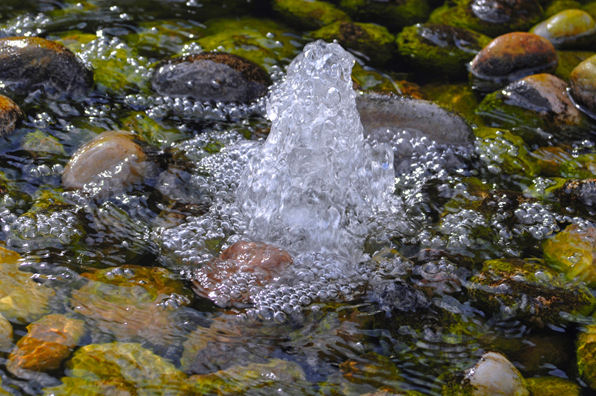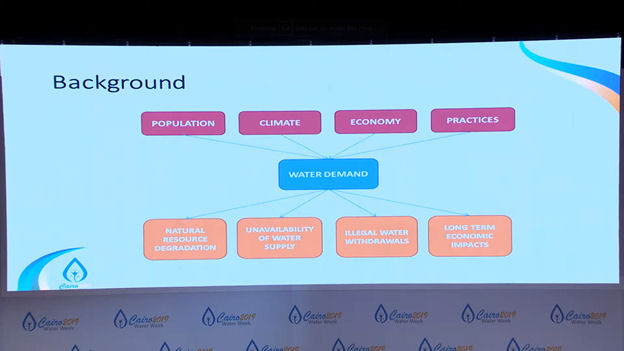“Groundwater development needs adequate drilling and pumping technology, as well as relatively cheap and easy-to-obtain energy.” (CUSTODIO, 2010)
One of our talks at the 1st Groundwater Project Event is about Groundwater and Intensive Use. Sustainable use of groundwater is one of the most important subjects we face as the Earth’s population of nearly 8 billion in 2020 is expected to reach 11 billion by 2100. Humans will have to learn to produce sufficient food without destroying the soil, water and climate. Sustainable management of groundwater is at the heart of the solution.

According to the United Nations Educational, Scientific and Cultural Organization (UNESCO, 2015), the world will face a water supply deficit of about 40% by 2030 assuming the current consumption rate remains unchanged. Therefore, water management based on scientific and technical knowledge that considers both surface water and groundwater is crucial.
Groundwater is particularly essential for human consumption and, according to the United Nations World Water Assessment Programme – WWAP (2009), it is the source of approximately half of all drinking water worldwide. An aquifer can store a large volume of water and thus allows for exploitation during long periods of low recharge (WWAP, 2012), but for this to be sustainable, efficient water management is required. Aquifers are the most reliable water reservoirs and their management is essential to ensure that water that is extracted is restored to preserve this resource for use by future generations. In some cases, natural recharge rates are insufficient to replenish an aquifer with the current water use, which implies that artificial recharge is needed to ensure a sustainable water balance. Since water degradation is related to water scarcity, it needs to be objectively assessed for timely management decisions to be made.

An article in The Guardian of November 26, 2020 attests that “about 1.5 billion people are suffering severe water scarcity or even drought, as a combination of climate breakdown, rising demand and poor management has made agriculture increasingly difficult across swathes of the globe. (…)The UN warned on Thursday that billions of people would face hunger and widespread chronic food shortages as a result of failures to conserve water resources, and to tackle the climate crisis”. Groundwater is a key resource to supply the population and help fight water scarcity, which is why managing it efficiently and using it properly is so important.
According to Manuel Sapiano, CEO at the Energy and Water Agency in Malta, “the three keywords for any policy in the water sector particularly in our country (Malta) are security of supply, the balancing between supply and demand and also environmental protection”. Around 60% of all the water usage in Malta is groundwater. The other resources mainly come from desalination of sea water or water reuse. There, they use horizontal groundwater tunnels and many other innovative solutions for supplying water.

Additionally Custódio (2010) says “often groundwater is the cheapest local water resource, and in cases where it is not, it is often due to hidden subsidies or unaccounted costs for other sources. However, almost unrestricted access to groundwater resources and lack of development rules, carried out by persons and entities not aware of aquifer properties, characteristics, quality constraints, and mutual interrelationships, has often led, and is leading, to problems, sometimes serious ones, but still with large reserves left and environmental damage that can be reversed, at least partly. To deal with this, and save what is a common asset, groundwater management, jointly with the whole water resources, land use and energy management is needed. This takes time, perhaps more than one or two human generations, but is achievable with a combination of public administration efforts and groundwater stakeholder involvement and co-responsibility”.
Both Dr. Emilio Custodio and Dr. Manuel Sapiano will be panelists at the 1st Groundwater Project Event in February 2021. Learn more, explore the exciting speakers and panels and register today: https://events.gw-project.org/2021
The world needs water, groundwater!
REFERENCES:
Chapter 14 of the book Re-thinking Water and Food Security:
Intensive groundwater development: A water cycle transformation, a social revolution, a management challenge by Emilio Custodio: https://www.hydrology.nl/images/docs/ihp/groundwater_governance/Intensive_groundwater_development.pdf
Cairo Water Week 2019 – Manuel Sapiano’s talk: https://www.youtube.com/watch?v=tlqhNkSebxo&ab_channel=CairoWaterWeek
The Guardian, 2009 – More than 3 billion people affected by water shortages, data
Shows: https://www.theguardian.com/environment/2020/nov/26/more-than-3-billion-people-affected-by-water-shortages-data-shows
United Nations Educational, Scientific and Cultural Organization: World Water Development Report: Water for a sustainable world, 122 pp., 2015.
World Water Assessment Programme – WWAP: The United Nations World Water Development Report 3: Water in a Changing World. Paris: UNESCO, and London: Earthscan, 76 pp., 2009.
